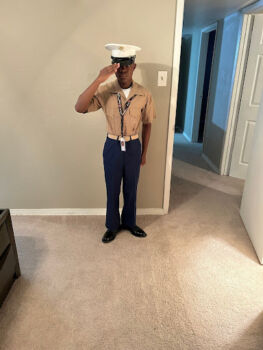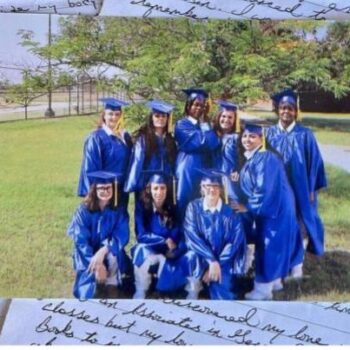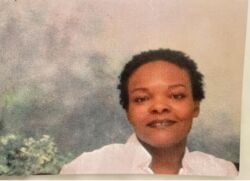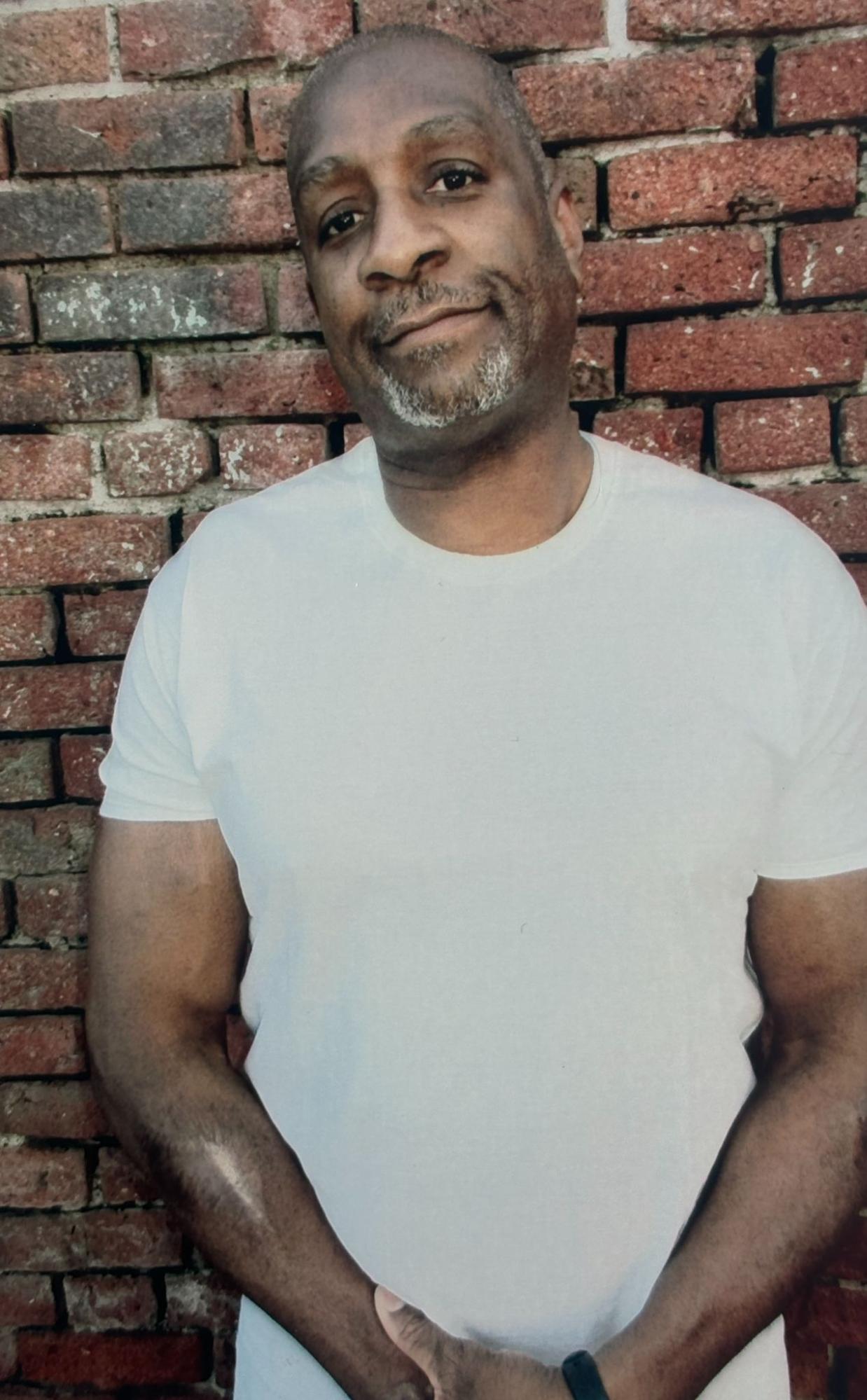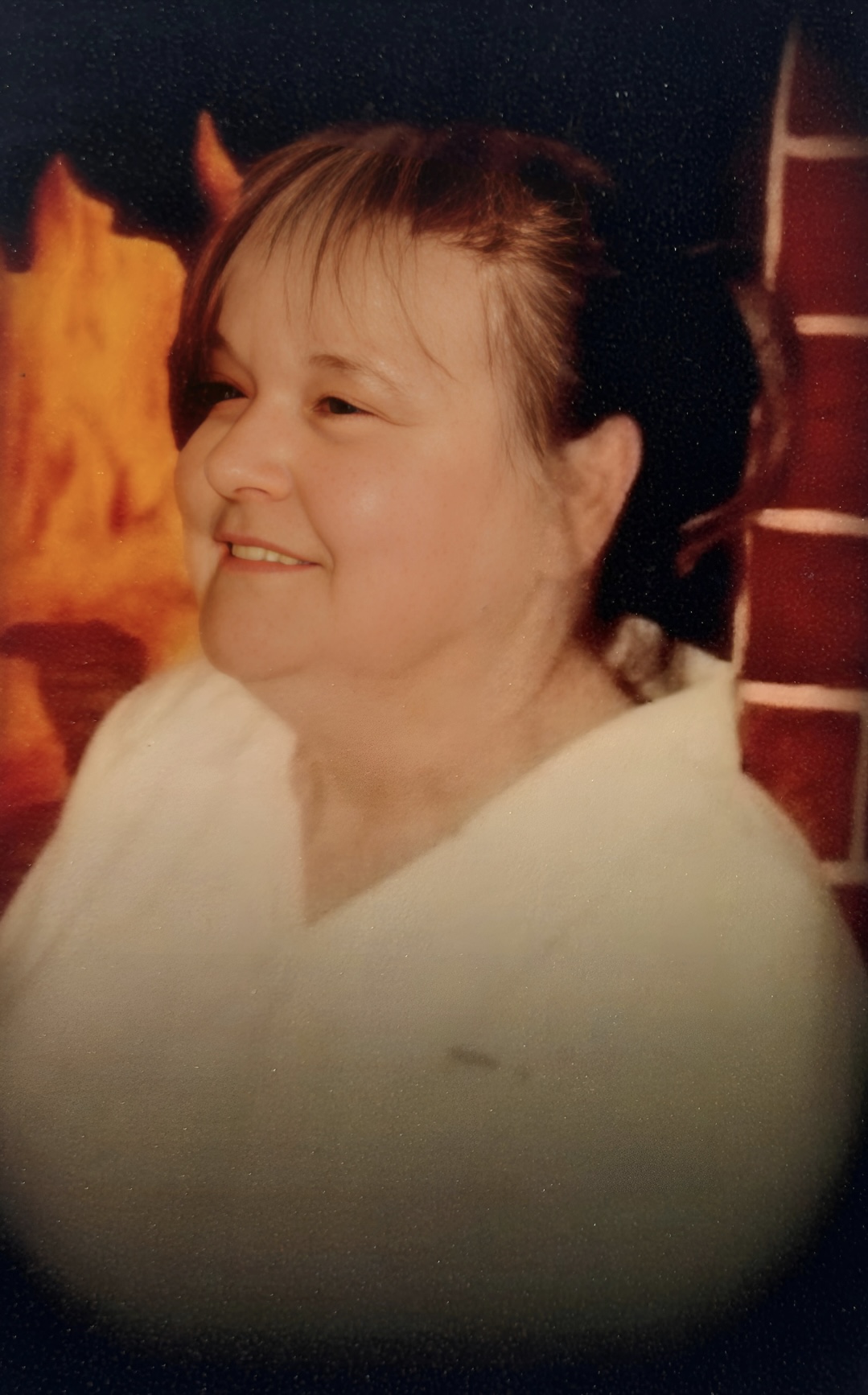Read Tandy’s original story HERE.
Diane: Tell us about your parole board hearing.
Tandy: I was denied several times, but when they reject you they give you a time frame. I was dismissed the first time and denied for three years. Every year when my parole date was coming up, I was denied another year, then another year. So when I went up for parole this last time, it was a crazy time too. I was in a rehabilitative house for awhile and they shot me out of there on November 7th, 2022, with this leg monitor. And I’m still on it. But because of my excellent behavior and completing everything that they required of me, plus working, they were like, no, she’s eligible for six months.
Diane: What are the requirements for where you can go?
Tandy: I am on the Super-Intensive Supervision Program, which is the most extensive. I need permission to go out my front door. My son must take out the trash and check the mail. I don’t even try to walk to the mailbox. I make a weekly schedule and submit it to my parole officer of where I will be. I ensure I have work and school on there and Walmart on Saturday.
Diane: Take us back to the night before you were released.
Tandy: Oh my God. I was so happy. I was ready. I packed everything up and went out to what we call ‘beach your feet’. I’m giving everything to people who don’t have it. So, I’m finding people and I’m giving them all of my appliances, all of my clothes, everything I had. And I just sat in my room, and I thought, You’re about to be a champion. I thought about all these positive things. I had written out every single thing that I’ve done. So, I was reviewing them. I was like, I’m about to make this happen. I was excited. I sat up most of the night and finally fell asleep. Then, first thing in the morning when they unlocked my cell, they said, “We can’t get your monitor to work. If we can’t get it to work right, we can’t let you out.”
Diane: Okay, so the monitor isn’t working. What happens next?
Tandy: I’m standing there for about four hours, waiting. Finally, the reentry lady feels sorry for me. It was raining and she said I’m going to take this outside and drive around and see if we can get a signal. I had some people walking by me saying, you’re not going home, some staff were gloating. They thought it was over for me, “You’ll still be here” and that was pretty ugly. I also had a lot of the ladies coming by and encouraging me and telling me religious stuff: “God wouldn’t bring you this far to leave you; don’t listen to them”. Then, the reentry woman came back with my monitor, she was like, I got it to work.
Diane: You needed those excellent vibes to outweigh the bad repression in that place. Who picked you up?
Tandy: My mom was waiting, wondering what was taking so long.
Diane: Explain the process of walking out of the gates from a Texas prison.
Tandy: After we go through the process of giving them their stuff back, they take us down to reentry. Reentry is supposed to have our social security cards or IDs. The idea is to have all your stuff ready to be employed when you walk out the door, instead of having to go through that process. Well, they didn’t have my stuff, of course. Then, your family brought you clothes, if not they give you clothes to change into, because you can’t walk out with white on because you don’t want anybody to mistake you for escaping. Then, they walk out that door, they point and say, “Don’t look back.” And then you walk out the door, and your family is to drive up into a pick up spot. When it’s your turn, your family drives up, you go out, get in the car, and drive off. People shouldn’t get out and hug you. You get right in the car and drive off. That’s how the process goes. It’s very stringent. If my brother had come, he wouldn’t have listened. He’d have jumped out of the car and hugged me, and it would be like, ‘What are you gonna do? I’m not breaking the law.’ My mom, she was just happy.
Diane: Where are you, in the front seat?
Tandy: Yes, I was leaning through the middle, hugging my kids while she’s driving. Then I hop in the back with them and hold them.
Diane: So moving.
Tandy: It was surreal.
Diane: Can’t imagine. And then what happened? Where’d you guys go? What’d you do?
Tandy: We went home because they said I had to go straight home. Well, whatever is on my schedule, like, say, I have to go to work. I can’t stop and get gas. I have to go straight to work. So, we went straight home. We went straight to my mom’s house. She had moved into a new house, she left 8815, which my son loved so much. And it was a lovely house. It is so nice coming from where we come from. My mom is doing so well. She gave me clothes and pajamas that they had bought me. Not very much, but some stuff to hold me over for a few days. Then I slept in the bed with my daughter, she was 16.
Diane: What was the first thing you ate?
Tandy: I told her I wanted some spaghetti. All I know is that I can see their minds saying, look at her go, every time I eat. Every time I sat at the table, my kids were very graceful. You would never know what they’re thinking; nothing ever shocks them. I’m like, “do you guys ever get surprised?” But my mom and her boyfriend, they were like, look at her go. I was tearing that food up, and that never eased up. After about six months, I said, “you must learn to slow down. Don’t go out with anyone in public.”
Diane: What happened the next day?
Tandy: I hit the ground running. That’s the thing, in prison we always say we’ve been sitting here all this time, when we get home, there’s no rest. We hit the ground running. My uncle sent me $500, and I used it to get a few pieces of clothes. I tried to apply for college, food stamps and jobs. This is all the very next day, I was already online, everyday trying to see what’s what with me, where I can go, what I can do. The thing hindering me was that I had no ID. I was fighting to get it. I had to go to the Department of Public Safety office three or four times because they were always saying, “We need this,” and I was like, “Why didn’t you tell me the last time I was here? I could have brought that too.” So I went back and forth. I couldn’t be employed until I got an ID. But I was diligent, so I kept working at that. Then I checked my credit. That’s one of the first things I did because there are a lot of people who don’t know that people who are incarcerated are getting abused by their family members or their loved ones. Anybody who has your social security number is putting so much stuff in our names, or identity theft is just a huge thing. You don’t want to call it that because it’s somebody you know, but it is what it is. My mom put a credit card in my name. I had to dispute that. I had to get all that stuff off of me. That was a process. I had to go through all three credit bureaus on the phone. Luckily, my mom has an office with a fax machine. And then my student loans, they don’t give you a way to get out of your student loans when you get incarcerated. Like you need help figuring out what to do. I had a lady from a college program inside as my support system, and she told me about a fresh start. So, I applied for a fresh start, and I was able to get a Housing Tax Credit and the University of Houston at the same time. So, I went to both schools, got my loans, applied for financial aid, and got it. I went back to school and started working one month later, but it was a temporary job. So, I did that and saved money. I got my next job and started working for the Houston Community Reentry Network Program, which I work for now.
Diane: I never thought about identity theft. No one’s ever brought that up to me before. Holy crap.
Tandy: Oh, in COVID, it was rampant because people were getting checks. So, they were using our names to get more checks.
Diane: What food have you enjoyed since you’ve been out?
Tandy: Well, when I came home, I liked restaurant food less, even though Houston has restaurants everywhere. That’s the go-out theme, but I like home-cooked meals. My mom cooked for me almost everyday for months. And I packed on a few pounds, of course, but I was skinny when I came home to afford those pounds. I’m not going to stop eating. I ate everything I couldn’t eat inside. Greens, turkey necks. I like a lot of vegetables. She made me a lot of broccoli, everything I wanted, including spaghetti. I ate everything. Just cook it, I’ll eat it.
Diane: You’re so lucky you had her to come home to.
Tandy: I did, and I am. She was very supportive throughout my incarceration and she raised my kids for me. I am her only daughter, so she was pleased and cooked for me often. So it was an excellent experience to be with her, and she’s getting older. So I’m just blessed that I can be here now.
Diane: Tell us about your children.
Tandy: My son told me just yesterday, while we were walking to the store, that he was supposed to give a pitch about a t-shirt line. I was like, “What will you talk about?” When he told me and it sounded down. He said, “I will talk about things being hard, but then they’ll get better.” I was like, “about a t-shirt line!? Where are you going with that?” The number on his t-shirt and logo is 8815, which is the big house he grew up in with my mom. And I was like, “What, you downgraded to our little apartment?” He said, “No, life has gotten much better since you’ve been home.”
Diane: I have chills. I wish him success with his t-shirt line. He’s a young entrepreneur.
Tandy: Yeah, he’s a lot like me. He’s planning his whole life already. I am like, “Boy, you are just like my twin.” I don’t have to worry about him. He’s on his way to the Marines when he graduates, that’s his plan. He has it all planned out, how he will do it, and he’s already seen what type of jobs he can get while in the military. I’m like, “Boy, you’re 15.” He’s like, “I’ll be 16 in 10 days.”
Diane: How are your kids adjusting to you being home?
Tandy: They are doing so much better. My daughter had a lot of struggles. Not only with my incarceration but with being a teenager and not being able to be a teenager, being stuck in the house a lot, then COVID, not even being able to go out for school. She faced a lot of depression, but she has been doing so well. And my son, too, he’s getting to go to his friends’ houses. His friends can now come over, my mom wouldn’t let them go to their friend’s homes, and their friends couldn’t come to her house. So now they get to have friends over and go over to their friends’ houses. They’re pleased. They feel freer.
Diane: It must have been hard to parent from a phone.
Tandy: Yeah, and I can’t imagine a kid going through all that without a parent. It’s just too much. I went without a parent before, it wasn’t because my parents were locked up. I was able to see them if I wanted to. I can’t imagine what they went through. We hang out. We play games together. Our favorite is Monopoly. I talked to them about how to play spades; they need to learn about cards. They are so lame. I’m like, “Yeah, y’all have no culture.” We played spades in the morning when I was your age. I’m teaching them stuff, and we hang out. My son is always showing me some videos that he finds funny.
Diane: Are you relearning anything?
Tandy: I’m learning how to cook again. They’ve been very patient with my cooking skills. My mom is a hard act to follow.
Diane: What are you looking forward to?
Tandy: I’m waiting to get off my monitor so I can do the things I like to do. I’ll be off parole in October, so I’m prepared to get my passport and leave. I’m ready to get some stamps. And I would like to go to spoken word places that do poetry. That’s my vibe. I’ve also never bowled. I want to go bowling with my kids.
Diane: Do you have plans for the future? Something tells me you have something cooking.
Tandy: I always got stuff cooking. I wrote a financial literacy guide for the reentry community. I got my Public Technical Identifiers taxes and took a tax course. So I started my own little business. I want to help people who the justice system has touched, start their own business, but it is tiny. I want to help the little guys, micro, small businesses, because we come home we face so much discrimination in employment. I don’t care if they mow lawns, I want to help them start that business, get your mower and a truck, and get you out there. That’s my goal. Finance is the thing that people have a hard time with when they start businesses, and that’s why businesses fail. I want to help them in that first year. I’ll stay consulting with them, teaching them, and showing them how to maintain their books and their financing. My major is in accounting. I’m in my third year at the University of Houston. I graduated from Houston Community College with a business degree in December and I’ll have my Bachelors in Accounting next year.
I’m also taking the Houston Turnaround Entrepreneurship Program to help in the beginning stages of my business with software and printers. I’m contacting organizations that are affiliated with the justice community and asking if they would like to adopt my financial literacy guide. People incarcerated have not had any financial education or personal finance. And it’s fundamental, it’s easy. I went from a credit score of 542 to a 700 within months because I went hard on what to do about this credit situation. Everything in my literacy guide, I’ve done it and it works. It’s straightforward, not hard to understand, and it’s only a little math for people who hate math. I’m hoping to pitch it and that’s what’s on the horizon for this year. I got my first tax client yesterday and did my first customer’s tax. So I’m excited. My little business made its first couple of bucks.
Diane: It’s nice not to be working for free. Isn’t it?
Tandy: Yes!
Diane: You’ve made it tangible for people inside and out, it’s not a 1970s protocol.
Tandy: Exactly, because these new kids are hearing something different. And the population is getting younger because they must bring in new people to keep the wheel running, right?
Diane: Ideally, you get the Texas Department of Criminal Justice to adopt it and get it to everybody in the system. I’m so impressed with your skill and drive. Were they supposed to provide you with an ID when you left prison?
Tandy: Yes, they had a new law and we have the machine at the prisons now. It’s a natural state ID. I went down there ten times, knocking on the reentry door saying, “Hey, do you know I made parole? Or do you know I’m up for parole?” They’ll kick into high gear when you go up those 90 days to get all your stuff. So, as soon as you go into parole review, which is usually 90 days before you even see parole, they’re supposed to get the ball rolling. Social Security Card and birth certificate. Mine was ordered in 2021, and they have yet to get a response from Chicago, where I’m from, and they didn’t do anything. They didn’t say anything. So the following year, when I went up again, I said, “Hey, my birth certificate was ordered, what happened?” “Oh, we didn’t hear anything. We should have ordered that again. Or we could make another request.” So yeah, when I came home with the money that my uncle gave me, that was one of the things I did. I paid about forty bucks and shipped it off to Chicago, and they sent it in about a week.
Diane: I’m just impressed. I hope your financial literacy takes off. And more importantly, I hope you get what you’re worth. I talked to a lot of people in prison and recently released who need financial literacy skills.
Tandy: Yeah, and I’m not even trying to make a lot. I need a couple more bucks to maintain, not work just to pay bills. That’s all. But I work at a staffing company, so I’m only a part-time employee with the City of Houston. My boss was renewing us at one point because we were getting 90-day renewals. She was renewing us one week here, one month there. And I was like, I can’t live like this. I would like to know if I will have a job in a week. I got bills to pay. So I’m going to hunt for another job.
Diane: I wish you all the luck in the world. You are a miraculous woman Tandy! Thank you for trusting us with your story.
Tandy: All right, thank you!



